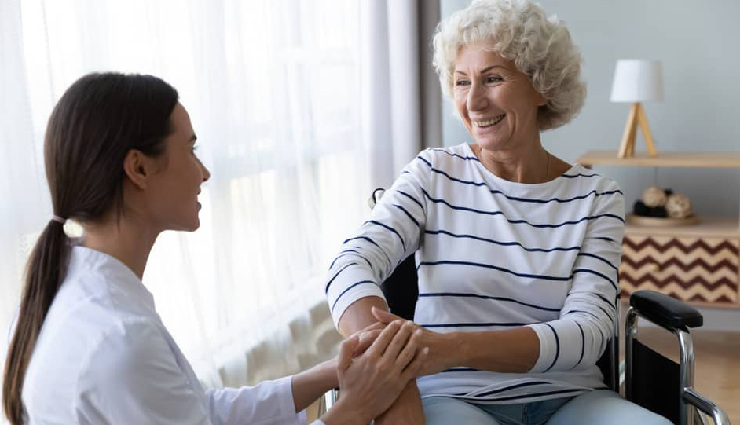- Home›
- Mates & Me›
- 12 Most Common Signs Your Aging Parents Need Help
12 Most Common Signs Your Aging Parents Need Help
By: Priyanka Maheshwari Tue, 26 Nov 2024 5:46:03

Caring for an aging parent or loved one is a balancing act that involves respecting their independence while addressing their health and safety needs. The signs listed above are crucial indicators that intervention may be necessary to ensure their well-being. Here’s how you might approach these situations:
-1732623003-lb.jpg)
# Changes in Weight
Action: Consult with a doctor to rule out medical issues. Ensure they have access to nutritious, easy-to-prepare meals. Consider meal delivery services or assistance with grocery shopping.
# Changes in Sleep Patterns
Action: Encourage them to visit a healthcare provider to address possible underlying issues like insomnia, depression, or chronic pain.
# Emotional Changes
Action: Talk openly with them about their feelings and experiences. Suggest seeing a therapist or counselor if they seem open to the idea.
# New Bruises
Action: Observe their mobility. A physical therapist or occupational therapist can recommend exercises and home modifications to reduce fall risks.

# Trouble Managing Medications
Action: Use a pill organizer or medication reminder apps. Consider having one primary care physician to oversee all prescriptions.
# Inability to Follow Medical Directions
Action: Attend doctor’s appointments with them if possible to help them understand and follow through with recommendations.
# Increased Confusion
Action: Schedule a cognitive assessment. Ensure that tasks are simplified, and consider using labeled containers or checklists for daily routines.
# A Home That Isn’t Being Maintained
Action: Offer help with chores or arrange for cleaning services. If necessary, assess whether their living environment needs to be simplified or downsized.
-1732623221-lb.jpg)
# Missing Doctors’ Appointments
Action: Help manage their schedule or accompany them to appointments. Arrange for reminders via calendars or apps.
# Lack of Grooming
Action: Gently address the issue and ask if they’re facing challenges. Consider professional in-home assistance for personal care if necessary.
# Noticeable Difference in Dexterity
Action: Encourage them to see a healthcare provider. Occupational therapy or assistive devices may help improve their dexterity and prevent accidents.
# Changes in Overall Appearance
Action: These signs often require immediate medical attention. Be vigilant and proactive in seeking care for sudden or severe changes.
Related Stories:
# 12 Tips To Have a Better Mother Son Relationship
# 7 Major Signs You are Growing Emotionally Distant with Your Partner





